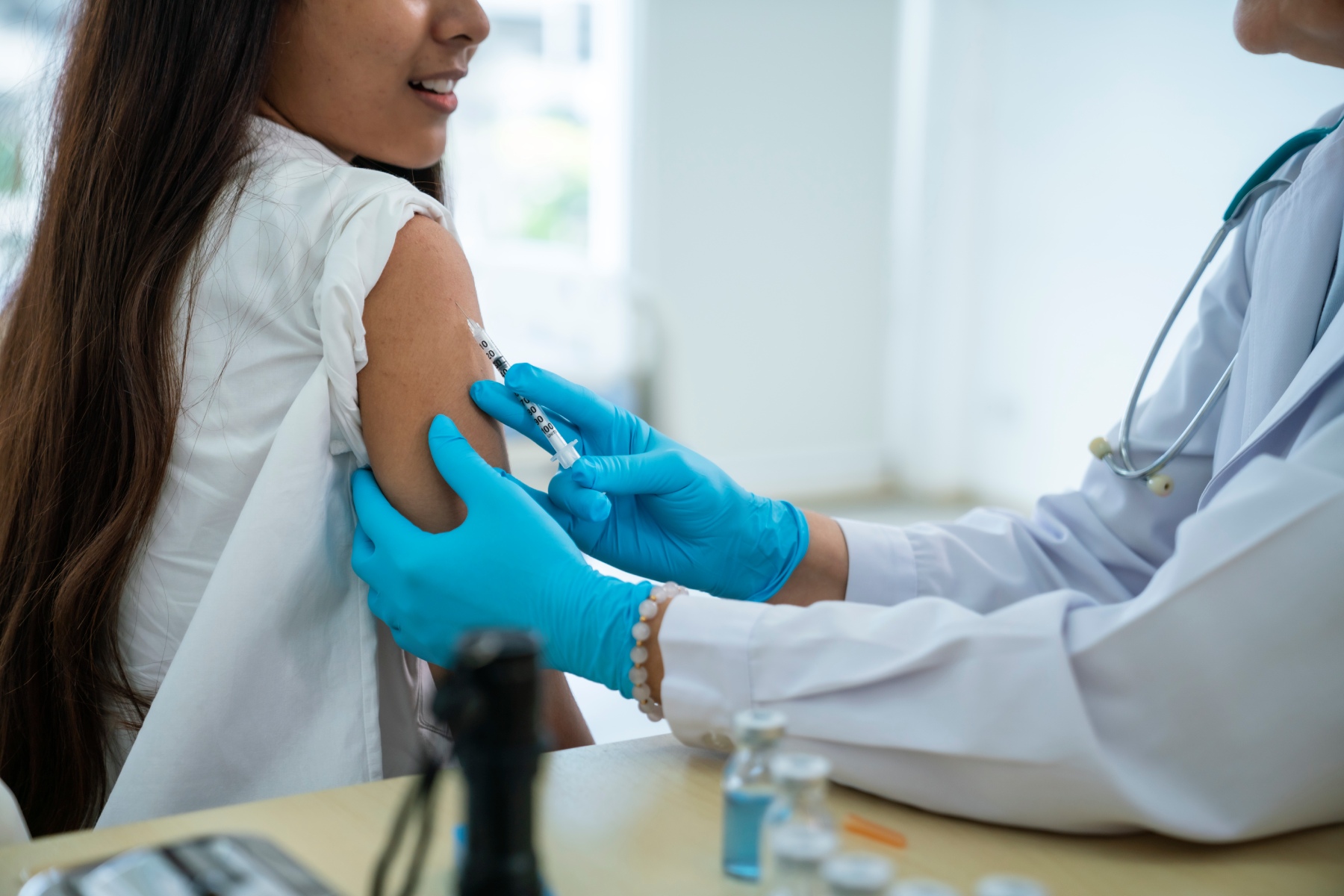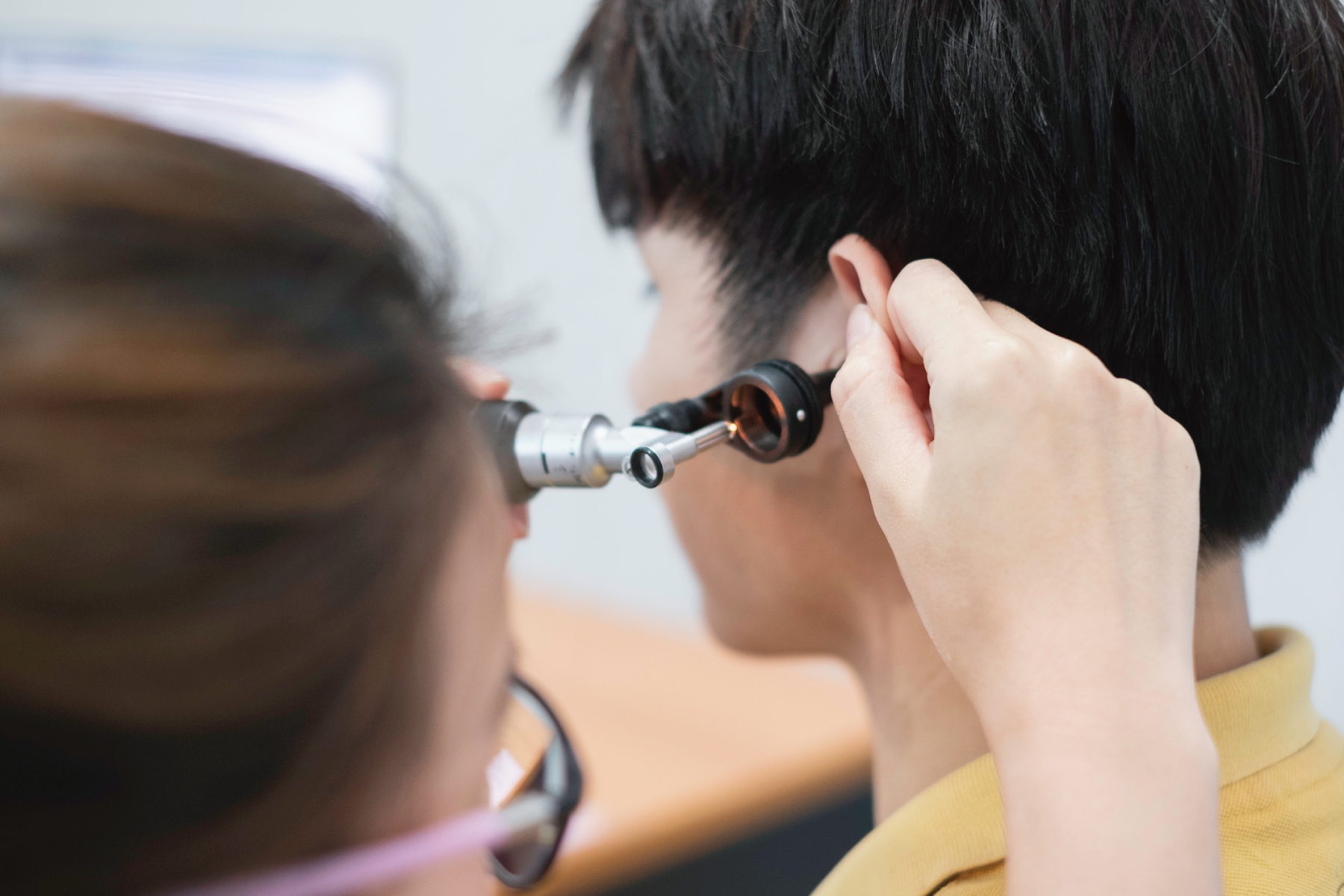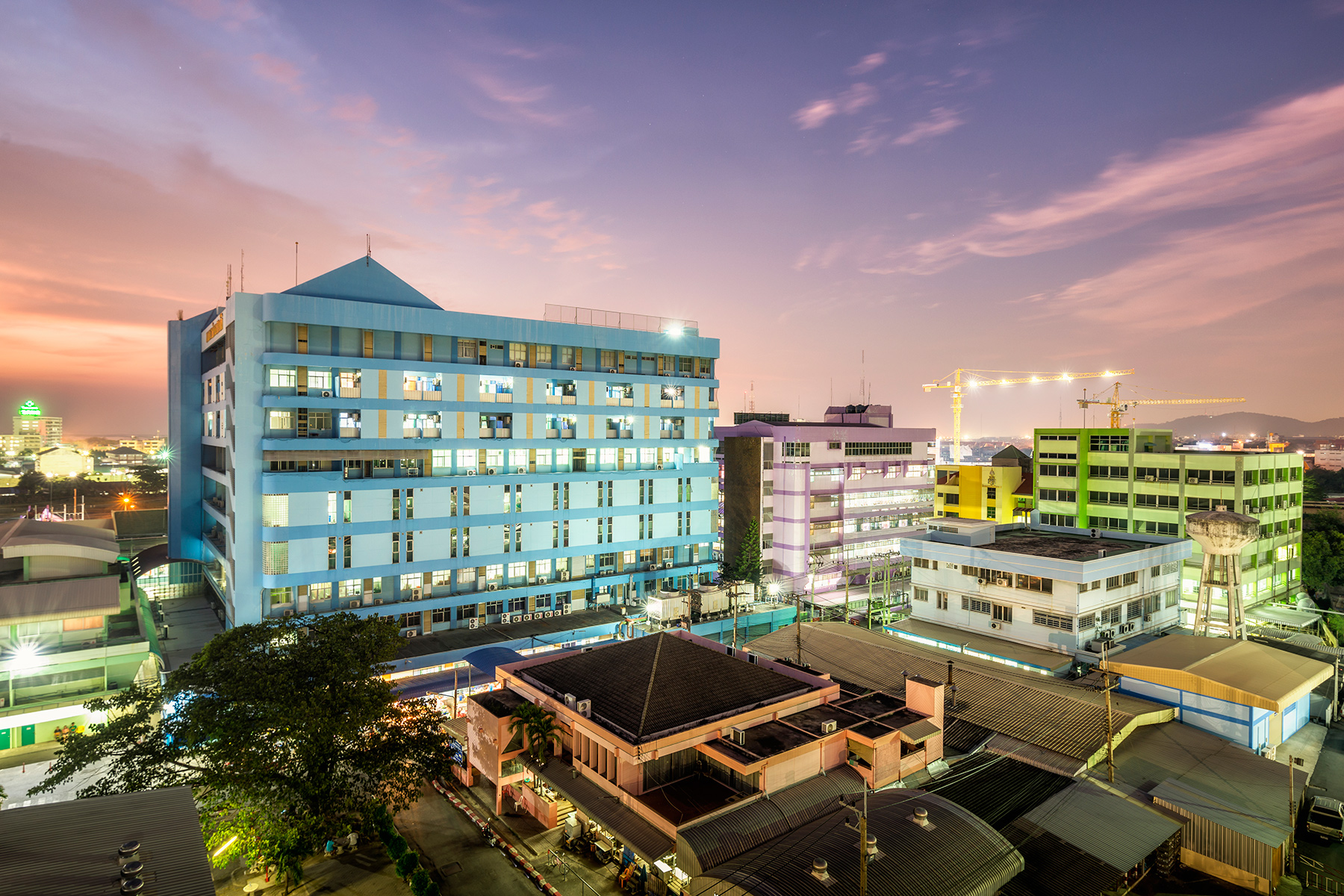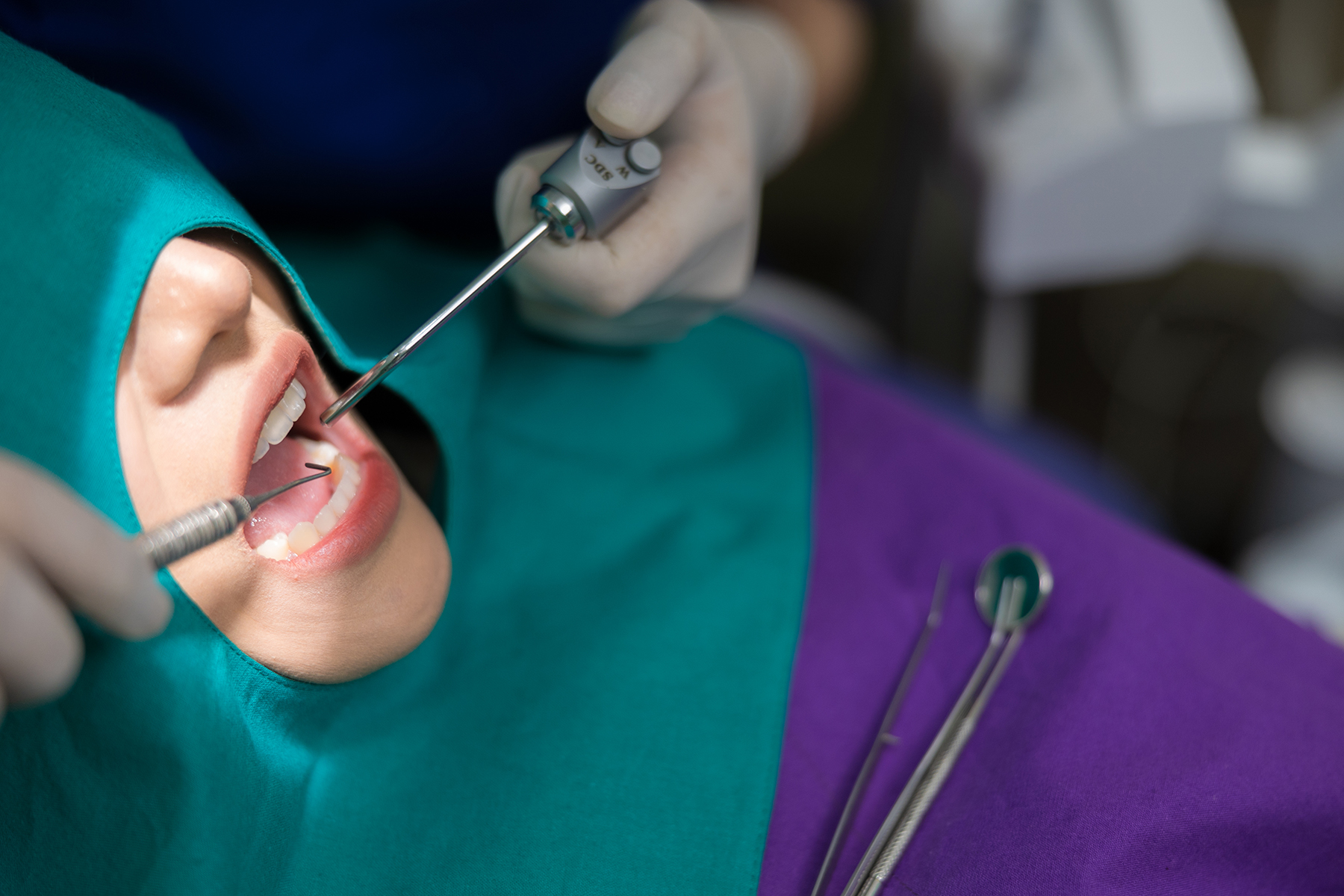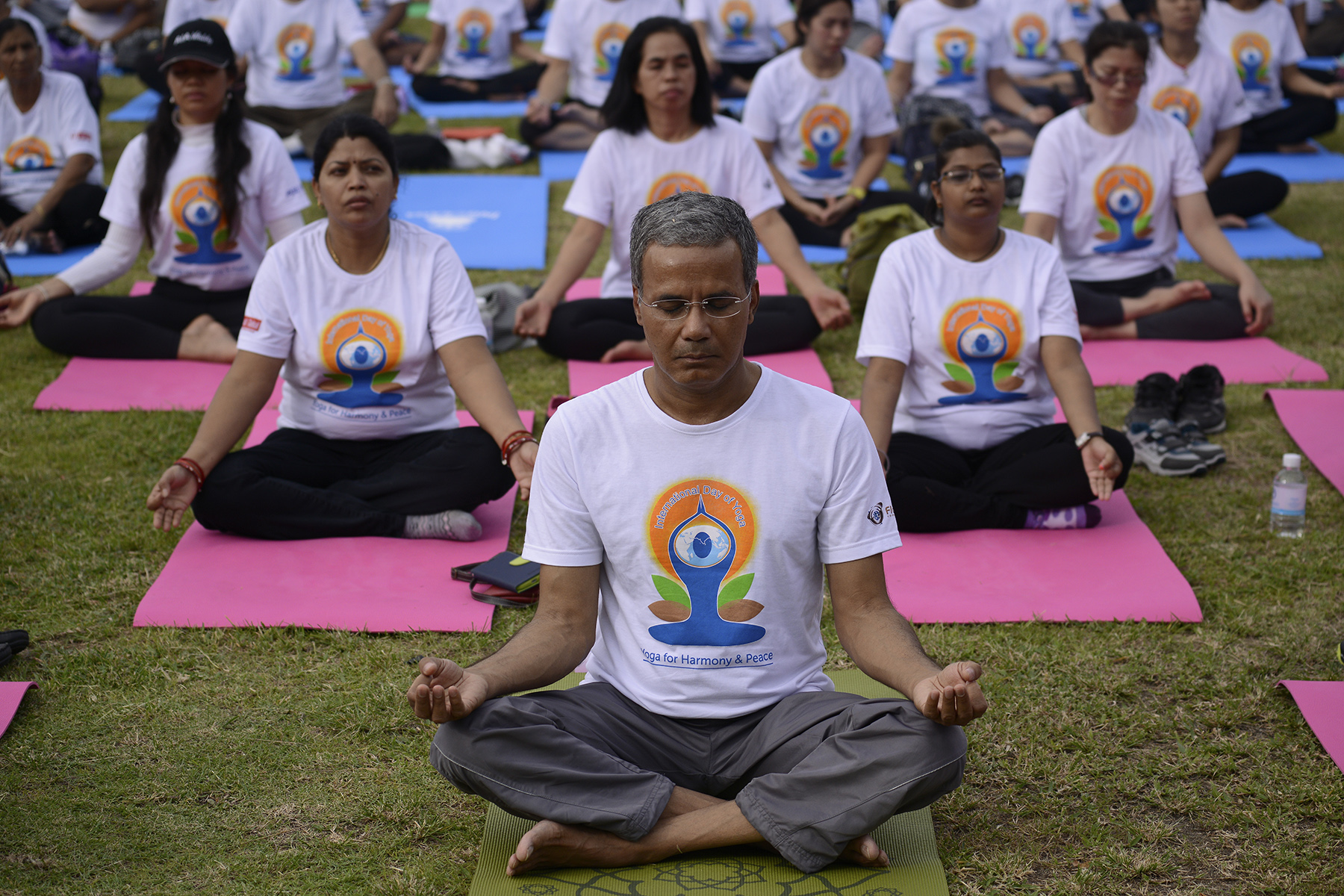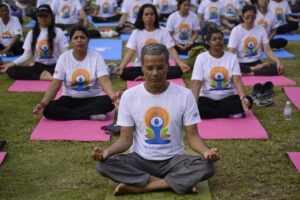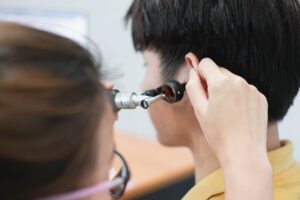Along with education, healthcare is arguably the biggest concern for parents moving to a new country with young children. For example, what can you expect in terms of doctor checkups, hospital care, and preventative measures such as vaccinations?
If you have moved to Thailand with young children, read on to learn more about children’s healthcare by exploring these topics:
- Children’s healthcare in Thailand
- How to access healthcare for your children in Thailand
- Taking your child to the pediatrician in Thailand
- Children’s vaccinations in Thailand
- Taking your child to see a doctor or specialist in Thailand
- Children’s hospitals in Thailand
- Children’s dental care in Thailand
- Mental healthcare for children and teenagers in Thailand
- Preventative healthcare programs for children and teenagers
- Useful resources
Allianz Care
Allianz Care is a world leader in providing international health insurance. Their various premiums provide professionally designed solutions for a variety of expat lifestyles. So, wherever your life takes you, make sure you have the right health protection for you and your family with Allianz Care.
Children’s healthcare in Thailand
Children’s healthcare in Thailand has improved significantly over the past two decades since the country introduced the Universal Coverage Scheme (UCS) – also known as Universal Health Coverage (UHC – โครงการความคุ้มครองสากล) – in 2002.
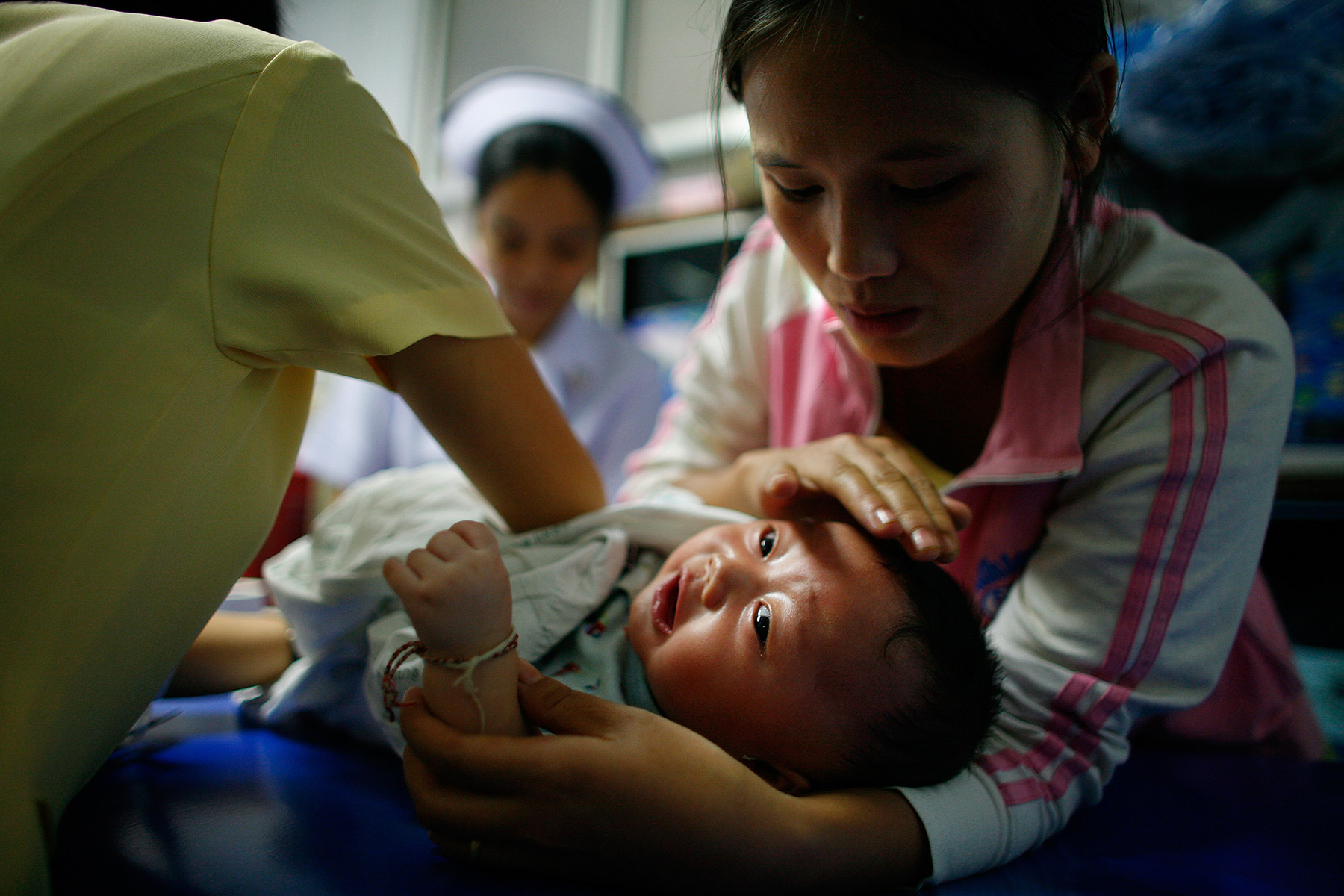
This public healthcare system, funded through taxes and employment-based insurance, covers most of the population and ensures that all children can use healthcare services.
For example, they can access doctors, pediatricians, and a range of specialists. There are also several dedicated children’s hospitals in the country.
Thanks to structural changes in Thai healthcare, the mortality rate of children under five has reduced from 37.1 to 8.3 per 1,000 births between 1990 and 2021 (UNICEF). This rate is now below both global and regional averages.
Although both child health and the quality of healthcare facilities have significantly improved, Thailand still has some way to go in terms of overall child health outcomes. According to WHO statistics (2022), 12.3% of children under five have underdeveloped height, and 7.7% are malnourished.
How to access healthcare for your children in Thailand
The Universal Health Coverage (UHC – โครงการความคุ้มครองสากล) program gives children access to free healthcare in Thailand.
If you work in Thailand, your employer usually deducts monthly social security contributions from your salary, which pays into the public health insurance scheme. This typically covers dependent family members.
You can also take out private health insurance if you want to access independent facilities or if your employer’s public insurance plan doesn’t include family members.
Bear in mind that the UHC scheme, funded through taxation, only covers Thai nationals and working expats.
If you relocate to Thailand without working and therefore don’t pay social security contributions, you need to purchase private health insurance or pay for treatments.
Public healthcare
As stated before, Thai citizens and working internationals making health insurance payments can access good quality public healthcare services for their children in Thailand.
Your employer should register you into the scheme, and you will usually be assigned to a local primary care unit. You will then be able to access general practitioners (GPs), doctors, nurses, and pediatricians for your children by visiting the unit and providing your child’s details.
Public healthcare for children in Thailand includes:
- Access to doctors, pediatric, and specialist care
- Routine checkups to monitor health and development
- Thailand’s public vaccination program
- Hospital treatment, including emergency medicine
- Dental care
- Public mental healthcare services
When attending an appointment with your child at a public medical facility, you should bring your social security card to show proof of entitlement to public services.
Private healthcare
There are many private clinics and hospitals in Thailand that you can access for your children if you have a health insurance policy. Some companies also provide social security plans that cover treatment at independent facilities. If you want to explore private options for your child’s medical treatment, check your insurance plan coverage or speak to the providers.

Although public healthcare for children in Thailand is good, the benefits of the private health system include shorter waiting times for treatment and a more comprehensive range of services. Many of the best hospitals in Thailand are privately run and include top-quality pediatric services. If you don’t have insurance coverage and want to go private, you will have to pay full fees, which can be pricey.
International providers offering good health insurance policies that also cover family members include:
You can also take out a standalone insurance policy that deals purely with your child’s healthcare. This might be worth considering if you want to cover all possible medical risks or if your child has specific healthcare needs.
Taking your child to the pediatrician in Thailand
Children in Thailand generally see pediatricians from birth until the age of 15. They will perform routine health checks and administer vaccinations. There are also various specialist pediatricians that you can access through a referral if your child has a particular health issue.
If you have a baby in Thailand or have moved with children and registered for public healthcare, you can access pediatric services through your local primary care unit. Private clinics and hospitals also have pediatric services as well as specialist units.
All Thai pediatricians need a license from the Medical Council of Thailand (TMC – แพทยสภา), and most are registered with an official body such as the Pediatric Society of Thailand. You can search for pediatricians and specialists on websites like Thailand Medical News.
Routine childhood health checkups
The Pediatric Society of Thailand (สมาคมกุมารแพทย์แห่งประเทศไทย) recommends the following checkups during a child’s early years:
- Newborn stage: A total of seven checkups during the first week after birth, then one, two, four, six, nine, and twelve months covering blood screening, cranium measurements, hearing tests, and developmental screening
- Early infancy stage: A total of four checkups at 18 months, then two, three, and four years covering developmental screening, blood pressure measurement, eyesight tests, dental checkups, and hematocrit screening (measures the proportion of red blood cells in the blood)
- Childhood stage: Developmental screening at the ages of six, eight, and ten
- Adolescent stage: Additional checkup between the ages of 11–14
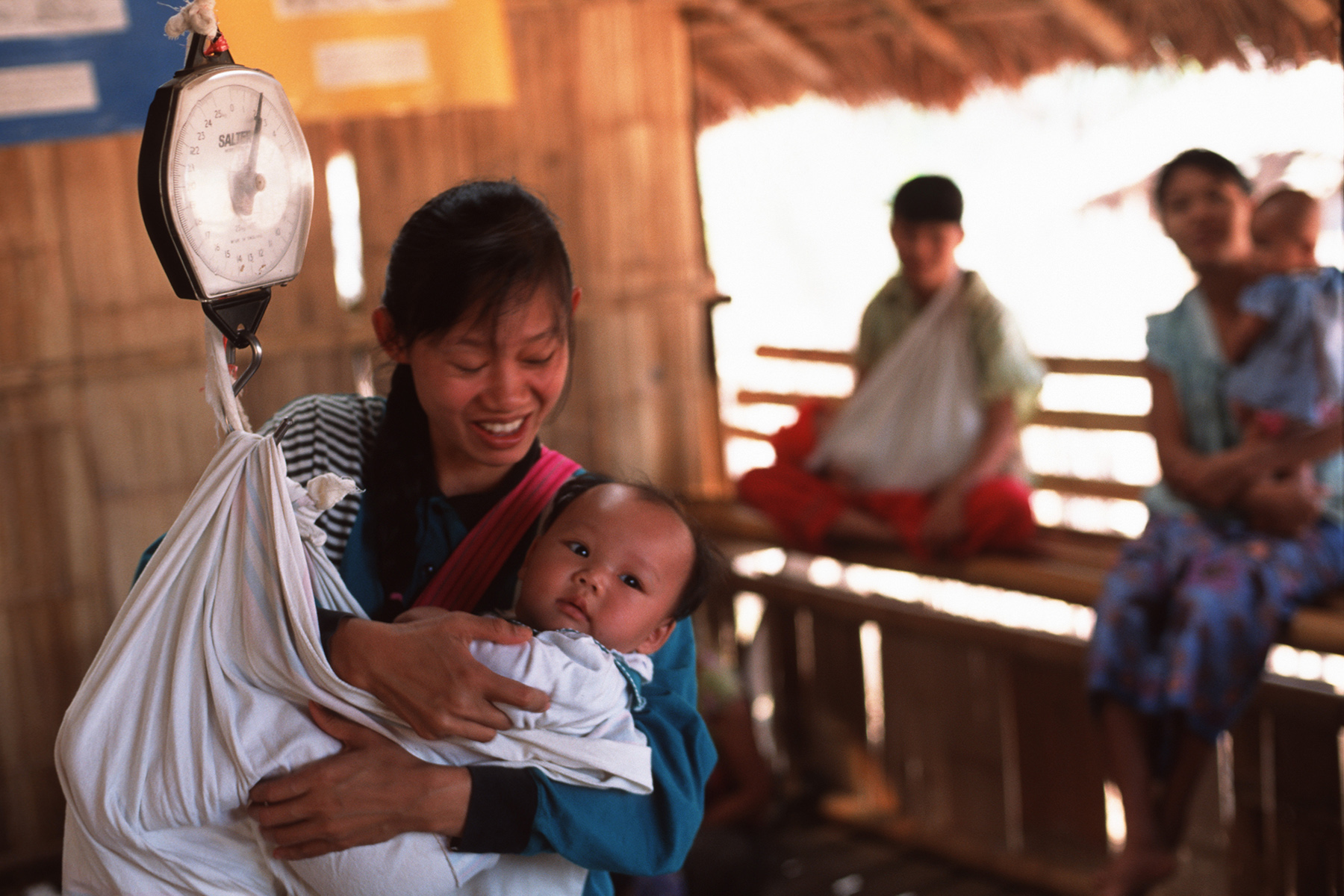
Pediatricians in Thailand work in clinics, health centers, and hospitals. Specialist pediatricians operate mainly in hospitals.
Each of these screenings should also include:
- General health inquiries
- Full body examination
- Growth analysis (measurement of weight and height)
- Evaluation of social, mental, and behavioral development
- Nutritional information and exercise recommendations
- Accident prevention advice
Children’s vaccinations in Thailand
Thailand has a National Immunization Program (NIP – โครงการสร้างภูมิคุ้มกันแห่งชาติ) that includes 12 vaccinations for children from birth to 12 years of age. These include inoculation against Tuberculosis, Hepatitis B, and Polio.
These vaccines are all free through public healthcare to anyone who can access them. If you are not entitled to public services or want additional vaccinations for your child, you will need to get them done privately and cover them with a private medical plan or pay out of pocket.
Taking your child to see a doctor or specialist in Thailand
Your child should be automatically registered at your local primary healthcare unit when you sign up for public healthcare. This will give them access to GP services and specialist care via referral.
In other words, your child can see any doctor providing public services in healthcare units across Thailand or private GPs and specialists if you have medical insurance or can cover the costs yourself.
While pediatricians provide regular healthcare and monitor your child’s health, GPs in Thailand are the first point of contact if they have any illness or injury. These primary care doctors can carry out basic tests, prescribe medication, give advice, or refer to a specialist if necessary.
Pediatric specialists in Thailand typically work in hospitals, although some may provide services in clinics or specialist medical centers. Examples of specialists in Thailand are:
- Pediatric neurologists
- Dermatologists
- Pediatric psychologists
- Physiotherapists
- Oncologists
- Pediatric nutritionists
Children’s hospitals in Thailand
There are a number of specialist children’s hospitals and health centers in Thailand. You can also find pediatric wards in most general and large hospitals. Most hospitals in Thailand are publicly run under the Ministry of Public Health (MOPH – กระทรวงสาธารณสุข) control. However, some of the most well-known children’s hospitals are private facilities in Bangkok.
You can access free pediatric services in hospitals with the necessary insurance coverage. For private hospitals, this will be either private health insurance or employer-based public insurance that includes private hospital treatment.
Children’s hospitals in Thailand include:
- Child’s Health Center at Bangkok Hospital (private)
- Pediatrics Center at Bumrungrad Hospital (private)
- Queen Sikirit National Institute of Child Health (public)
- Samitivej Children’s Hospital (private)
- Thailand Children’s Hospital (public)
Children’s dental care in Thailand
Free dental care is available for children at public dental clinics and orthodontic departments in public hospitals. However, this only extends to primary and emergency dental care. You’ll need private insurance to avoid expensive fees for more extensive treatments such as braces and crowns.
Registration procedures for public dental care are the same as for other statutory healthcare services. You just need to ensure that you register your child under your social insurance and then take your social security card and your child’s ID to any appointment.
In addition to dental treatments offered to children, oral health education is included in health promotion programs provided to many schools in Thailand via the MOPH.
Mental healthcare for children and teenagers in Thailand
You can access pediatric mental healthcare services in Thailand through doctor referrals to specialist support from psychiatrists, psychotherapists, and other mental health professionals. However, mental healthcare provision across the country continues to fall short, and there is a lack of coverage within the UHC system.
This is the reality even though around one in seven 10 to 19-year-olds and one in 14 children aged five to nine in Thailand have mental health disorders, according to a 2022 UNICEF report. The situation worsened during the COVID-19 pandemic, with 70% of Thai children reporting poor mental health and some saying they experienced suicidal thoughts.
Most public mental health provision in Thailand is in the form of psychiatric services delivered through child psychiatry centers, specialist units in general hospitals, and adolescent mental health clinics.
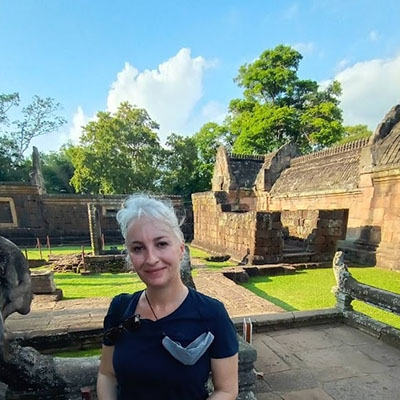
Local expert
Jane Evans
Insider tip
You can also access some therapy services via GP referral – although support is limited – and community projects (run by volunteers) that support youth mental wellness. There is more service availability through the private sector, which is costly but can be covered under private insurance.
In addition, many Thai schools now run wellbeing projects to improve their pupils’ mental health. For example, schools have been working with UNICEF to tackle problems and create a more positive environment for students.
Preventative healthcare programs for children and teenagers
Thailand’s overhaul of its health strategy at the start of the 21st century included the establishment of the UHC system and the Thai Health Promotion Foundation, which focused on several key areas of improving health outcomes in the country.
One area was children’s health, which has led to the Healthy Child, Youth, and Family Promotion Plan. This initiative involves public health professionals working closely with preschools, nurseries, and primary and secondary schools to deliver education in areas such as:
- Healthy eating and nutrition
- Physical exercise
- Mental well-being

Thailand also has a strong culture of volunteer-led community health promotion and disease prevention. These programs mainly target adults and children from lower-income and rural communities to address and offer support in areas such as:
- Health information and advice
- Healthy living strategies
- Well-being techniques
Useful resources
- Thailand Medical Hub – Department of Health website with information on health services
- National Health Security Office (NHSO) – manages the universal public healthcare service for Thai citizens
- Pediatric Association of Thailand – main membership body for pediatricians and child healthcare professionals in Thailand (website in Thai)
- Ministry of Public Health (MOPH) – state department governing hospitals




